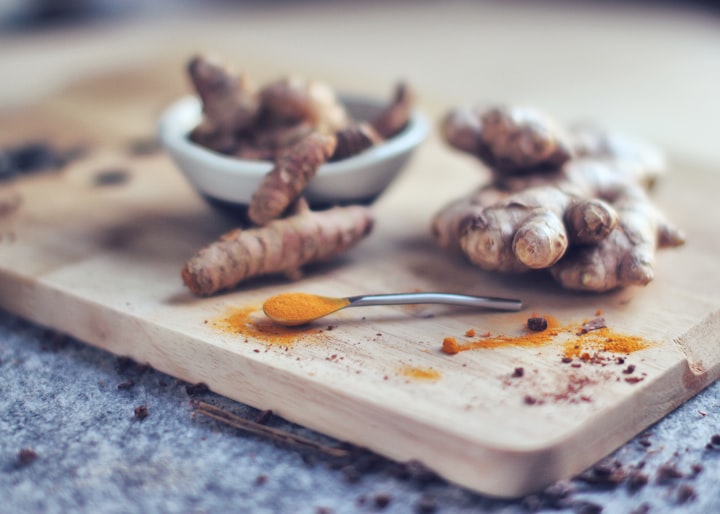The bodily changes that occur when ginger is included in your daily diet.
Ginger, a spice with a 4,000-year history, is a potent herb known for treating and preventing various diseases. Originally used in Indian Cuisine and traditional Chinese medicine, ginger's unique taste comes from its active component gingerol, which possesses antibacterial and antioxidant properties. Apart from impacting taste buds, ginger influences multiple bodily functions. Here are some noteworthy health benefits of consuming ginger.

Please note that the information provided is unbiased, fact-checked, and reviewed by qualified health professionals. Consult your personal doctor before implementing any.
1. One of the traditional uses of ginger in Chinese medicine is for easing nausea. It is believed that ginger stimulates saliva and gastric juice production, aiding digestion and reducing nausea. Ginger may also have anti-spasmodic properties, relaxing smooth muscles in the digestive tract. This effect is attributed to compounds like gingerols, show galls, zingerons, and aromatic oils present in ginger. Additionally, ginger has anti-inflammatory effects in the gastrointestinal tract, further contributing to its anti-nausea properties. To relieve nausea, try drinking ginger tea by adding one teaspoon of grated fresh ginger root to a cup of boiling water. Let it cool for 10 minutes before consuming, and repeat two or three times a day for mild nausea associated with pregnancy or motion sickness. For severe nausea or vomiting, seek immediate medical attention for appropriate treatment.
2. Incorporating ginger into your diet can enhance your immune system by promoting better circulation, aiding in the body's defense against infections. Ginger contains compounds like gingerol and shogol, known to stimulate the production of natural killer cells, crucial for immune function. Gingerol specifically enhances the activity of white blood cells, essential for combating infections, and boosts the production of macrophages, responsible for removing harmful substances from the body. This immune-boosting effect helps protect against bacteria, viruses, and other invaders that may lead to illness or disease. Research has also indicated that shogol can prevent certain cells from dying when exposed to viruses such as influenza A and rhinoviruses, commonly associated with colds.
3. Ginger has a long history as a home remedy for migraines, with believed mechanisms including the inhibition of inflammatory enzymes associated with migraines. It is also thought to have muscle-relaxing and blood vessel-reducing properties, which can alleviate pain. To maximize the benefits of ginger, try consuming it raw, dried, or incorporating it into your favorite recipes. Ginger supplements are also available at pharmacies and health food stores. Moreover, ginger contains shogao, which has shown to reduce blood flow in the brain. This effect may help relieve migraine pain by reducing blood flow to sensitive areas of the brain. If you've been enjoying our video so far, remember to like and subscribe to our channel for more informative content.
4. Ginger shows potential in lowering the risk of cancer, a devastating disease responsible for numerous deaths each year. Cancer occurs when cells grow uncontrollably, leading to various forms of the disease. For instance, skin cancer arises from damaged cells that fail to die as they should, potentially forming tumors that can metastasize. Studies indicate that Ginger contains antioxidants and phytochemicals that may combat cancer cells in the body. In vitro research observed the impact of Ginger extracts on prostate cancer cells, revealing a potential 40% reduction in the risk of prostate cancer with a daily intake of three grams of powdered ginger root. Additionally, in a study published in the Journal of Cancer Prevention Research, Ginger extract demonstrated a significant decrease in tumor growth by approximately 50% in mice with breast cancer. Further analysis of human breast cancer cells in a laboratory setting showed that Ginger extract hindered their ability to spread, suggesting its potential as a treatment for metastatic breast cancer, a particularly fatal form of the disease known for its systemic spread throughout the body.
5. Ginger has long been utilized to manage high blood sugar levels, particularly in individuals with type 2 diabetes. When consumed in capsule form, ginger has been found to lower glucose levels by stimulating increased insulin production in the pancreas, thanks to its active compounds like gingerols and shogols. Additionally, ginger's anti-inflammatory properties can help reduce inflammation, a key contributor to type 2 diabetes. A study published in 2009 demonstrated that ginger enhanced glucose tolerance by promoting insulin secretion from the pancreas and improving insulin sensitivity. The study involved 16 healthy participants who took either 500 milligrams of ginger powder or a placebo before meals three times a day for 40 days. The results revealed significantly lower post-prandial blood glucose levels in the ginger group compared to the placebo group.
6. Ginger is a natural remedy that can assist in alleviating anxiety, a common reason for seeking medical assistance. Anxiety, characterized by feelings of fear, nervousness, or worry, is a mental health condition that, while normal and occasionally beneficial, can disrupt daily life if persistent or uncontrolled. Fortunately, numerous methods exist for managing anxiety, including exercise and dietary adjustments. Incorporating high-fiber foods and omega-3 fatty acids into your diet is recommended by experts to reduce anxiety symptoms. Additionally, ginger serves as another herbal remedy with a long history of use in Asia and Africa to promote calmness and alleviate nervousness.
7. Ginger offers potential in reducing indigestion, a common issue characterized by bloating, gas, burping, and heartburn that occurs shortly after meals and can persist for hours or days. Alongside ginger, other herbs like fennel seeds, peppermint leaves, basil leaves, and chamomile flowers are also utilized as natural remedies for indigestion. Ginger contains gingerols, which possess anti-inflammatory properties, providing relief from indigestion-related pain. Additionally, gingerols can help decrease gastric acid production, aiding in the treatment of mild stomach ulcers. Ginger can be consumed as tea, added to food or beverages, or taken in supplement form for maximum efficacy in reducing indigestion.
8. Ginger shows potential in assisting with asthma, a chronic lung disease that hampers breathing due to swollen and narrowed airways. While there is no cure for asthma, many individuals can effectively manage their symptoms without relying on daily inhalers or medications. The gingerol compound found in ginger aids in relaxing the muscles in the lung airways, reducing swelling and facilitating easier breathing. It also helps minimize mucus production, making it easier to expel sputum through coughing. If you experience difficulty breathing, consider juicing two to three inches of fresh ginger root and consuming it promptly. Alternatively, you can prepare ginger tea by adding one teaspoon of grated ginger root to a cup of boiling water and steeping for 5 minutes.
9. Ginger may reduce the risk of Alzheimer's disease by preventing the formation of brain plaques, which are deposits of amyloid beta peptide linked to the development of Alzheimer's. In laboratory tests, ginger extract inhibited beta production by up to 80%. Furthermore, gingerol, a compound found in ginger, helps combat oxidative stress in the brain by inhibiting enzymes that produce inflammatory compounds associated with Alzheimer's disease. However, it is important to note that the decrease in antioxidant enzymes, such as catalase and glutathione peroxidase, also contributes to oxidative stress. Ginger is generally considered safe when consumed as a food, with no known side effects. However, it is advisable to be cautious of potential interactions between ginger and certain medications or other herbal supplements.
10. Ginger has potential effects on blood sugar levels and can interact with other herbs, vitamins, or medications. Some individuals may experience mild gastrointestinal symptoms after consuming ginger, such as bloating, nausea, or diarrhea. Those with gallstones should avoid ginger as it can worsen symptoms. It is crucial to consult with a doctor before taking ginger if you have diabetes, a bleeding disorder like hemophilia, or if you're on medication for these conditions. Additionally, ginger may interact with certain heart medications, so it's important to seek medical advice before incorporating it into your diet. Ginger offers versatile benefits, relieving various symptoms and discomfort, making it a valuable addition to a health-conscious individual's kitchen. Its anti-inflammatory properties also make it beneficial for those following a diet regimen.






Comments
There are no comments for this story
Be the first to respond and start the conversation.